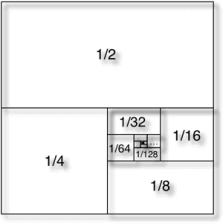Imaginary?
- International Stem Club

- 2019년 9월 13일
- 4분 분량
Today I was working a problem involving complex numbers in number theory. A friend, Kesavan, dropped by to chat, which I welcomed -- I wasn't making progress anyways. He saw "complex numbers" written on my scratch work and said, "Aha, I know what those are." So I asked him what they were.
Kesavan gave the definition I more or less expected to hear -- numbers of the form a+bi, where i is the square root of -1. For most practical purposes, this is good enough, but mathematicians like to laugh at this and say, "No, you've been taught all wrong." And maybe there is a good reason. I told this to Kesavan.
"OK, then what are complex numbers?"
There are a few definitions that amount to the same thing, all better than invoking "the square root of -1." We assume common understanding of the real numbers.
Complex numbers are pairs of real numbers (a,b) with addition defined component-wise, and multiplication defined by (a,b) x (c,d) = (ac-bd, bc+ad). This definition is the cleaned-up, mathematically precise way to state the "a+bi where i is the square root of -1" definition, but it doesn't give insight as to what the complex numbers represent. Under these axioms of addition and multiplication, check that if we let 0 represent (0,0) and 1 represent the number (1,0), then the polynomial x^2 + 1 = 0 has a solution -- namely, (0,1), which you might recognize as our analogue for i.
Complex numbers are the set of polynomials with real coefficients taken modulo x^2 + 1, written R[x]/(x^2 + 1). Do check that these complex numbers also have a solution to x^2 + 1 = 0: let x be the polynomial x.
Complex numbers form the smallest field extension of the reals for which the polynomial x^2 + 1 factors completely. (The complex numbers form the splitting field of x^2 + 1 over R.) We could write this as R[i], where i is a root of x^2 + 1 in the field extension.
I explained that, even though each definition establishes complex numbers in a different "type" (i.e. the first says they are pairs of reals, the second says they are polynomials), with some work we can show that the resulting sets all "behave the same way" -- they're isomorphic. So we decide to call the set they all represent the "complex numbers" and write a+bi for common notation. Kesavan remarked that as foreign as these definitions were, he could sort of guess why they made sense: the polynomial x^2 + 1 has i as a root. We can represent each complex number uniquely as a+bi and not a+bi+ci^2 or a+bi+ci^2 + di^3 because i^2 = -1 and we can "reduce" higher powers of i; this kind of reduction is the idea behind the second definition, with polynomials.
"Let's talk about my definition with the square root of -1 again," he said. "If all that matters is that our new 'imaginary root' satisfies x^2 + 1 = 0, why don't we define i as the negative square root of -1?"
This is a good and natural question. The answer is, we can! It won't matter -- the complex number system we build using "the other root" will be isomorphic to the complex numbers as we know them. Plus, the notion of "the other root" is relative to the root we pick first: if x^2 + 1 has two roots i and i', and we pick i' to make R[i'], then i is automatically -i', and we're back to wondering why we didn't pick the negative root.
"Why do we care about these weird, precise definitions?"
Ah, the kind of question that makes me tremble when I must face it -- why is this stuff useful? Luckily, I think I had a fair response to this one. Basically, the process of adjoining a root of a polynomial to a field so that the polynomial factors is generalizable to other fields. It's an idea every algebraist need be familiar with, and it's a central part of Galois theory. Mathematics is, in some ways, taking a familiar idea and seeing how general we can get with it. So, we shouldn't think of the complex numbers as some arbitrary construction with specific properties; we should place it in the larger context of field extensions. (At least from the algebraist's point of view!)
I began to babble about why we don't care to extend the complex numbers to even bigger fields, how they're algebraically closed and what that means, and how Gauss proved the fundamental theorem in his thesis a few hundred years ago. Kesavan was losing interest.
"I respect that you're into this stuff. But me, I'm happy taking the theory for granted, and the most I'll ever do with complex numbers is apply them to some calculations. By the time I get to engineering, I'll be writing a+bj in place of a+bi anyways!"
Kesavan, every day you stray further from God's light.
Just kidding! We love engineers. And complex numbers.



댓글